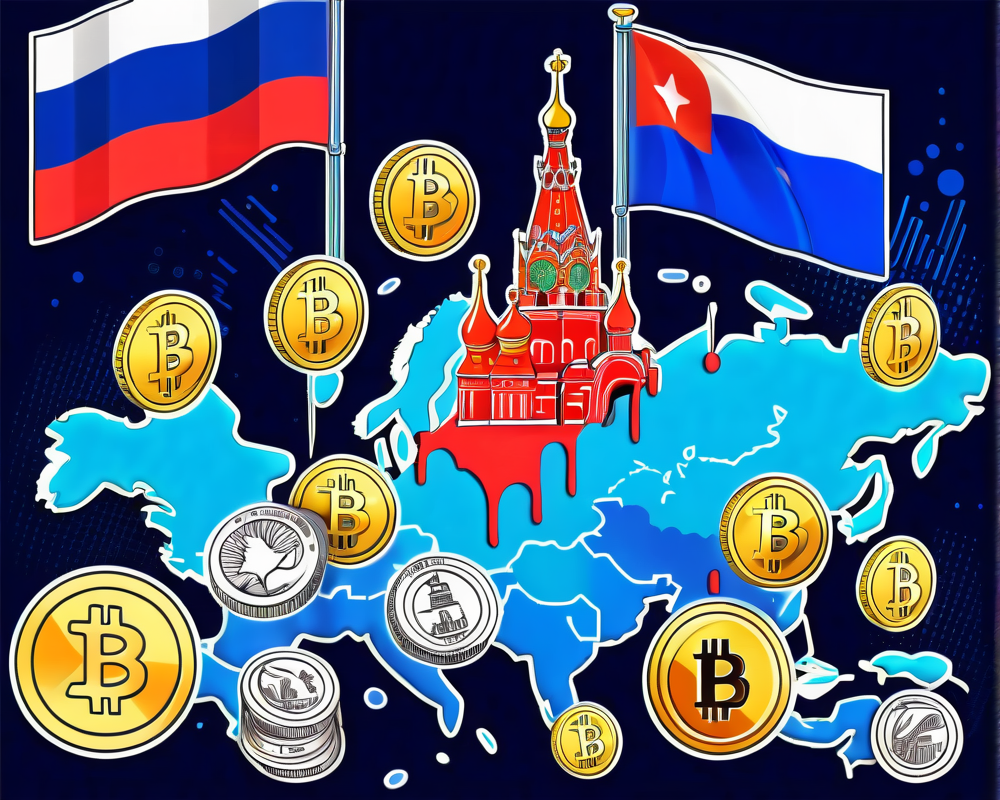Cryptocurrency: A New Tool for Economic Survival
In the wake of hefty global sanctions triggered by its invasion of Ukraine, Russia is looking to cryptocurrency as a lifeline. When life gives you lemons, make digital assets, right? According to reports, Russia’s central bank is planning to establish new frameworks to harness cryptocurrency for international payments. It seems that bitcoin might just give them a fighting chance—or perhaps just a very expensive hobby.
A Pilot Program Born from Necessity
Elvira Nabiullina, head of the Bank of Russia, unveiled plans for a pilot program aimed at employing cryptocurrency in external transactions. In a quirky twist, she assured everyone that within Russia, cryptocurrency usage will remain under wraps. “We are sticking to our guns here, folks! No crypto for local transactions, but let the experiments commence outside our borders,” she stated.
Creating Special Organizations: A Legal Lab
To execute this grand vision of trading in magic pixels, the Bank of Russia is planning to create ‘special authorized organizations’ for crypto activities. This means they might have crypto-mining organizations and entities specializing in international settlements—hopefully staffed by tech-savvy folks rather than a bunch of grumpy bureaucrats.
- Key Points:
- Establishment of organizations to manage crypto mining.
- Focus on transactions involving digital assets.
Labor Pains: Negotiations with the Government
Bank of Russia’s deputy chairman, Aleksey Guznov, mentioned that they’re in talks with the government about the operational framework. Private companies could join the party, indicating that soon it might be easier for an average citizen to mine bitcoin than find a parking spot in Moscow. Let’s keep our fingers crossed on that!
The Global Implications: A Shifting Financial Landscape
Industry experts like Gabby Kusz, CEO of the Global Digital Asset & Cryptocurrency Association, warn that this isn’t just a Russia-centric affair. The shift in thinking around cryptocurrency could shake the foundations of the global financial system, affecting the United States’ influence as well. “The West should tread lightly. Driving innovation abroad might just kick them where it hurts in the long run,” Kusz elaborated.
“Trust isn’t absolute; relative trust is what keeps us awake at night.” – Mark Lurie, CEO of Shipyard
BRICS Currency Ambitions: A Cause for Concern?
Recent discussions among BRICS nations (Brazil, Russia, India, China, and South Africa) regarding a new trade currency add another twist to this tale. According to Mark Lurie of Shipyard, while there’s growing skepticism towards the U.S. dollar, there’s just as much distrust towards a BRICS currency led by Russia. Ultimately, who can you really trust in financial matters? That’s the million-dollar question—or should we say the digital coin question?



